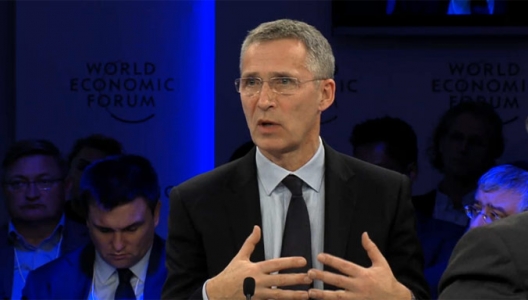 One key element in that is to make sure that we have a strong transatlantic bond also in this new security environment and just to be clear about that because everyone asks me about that, I’m absolutely confident that also with a new US administration, we will have a strong US commitment to a strong transatlantic partnership in NATO….
One key element in that is to make sure that we have a strong transatlantic bond also in this new security environment and just to be clear about that because everyone asks me about that, I’m absolutely confident that also with a new US administration, we will have a strong US commitment to a strong transatlantic partnership in NATO….
I believe strongly that the United States expects European NATO allies to invest more in defence and the good news is that European allies have started to do exactly that. So defence spending has actually started to increase…. So we are moving in the right direction….
We are stepping up our efforts to fight terrorism. We are in Afghanistan to fight terrorism. You have to remember that the reason why we’re in Afghanistan is to fight terrorism. We are doing more to support the US led coalition countering ISIL and then, we have during the last years, increased our focus and we’re doing more when it comes to cyber-defences because we have to understand that cyber-attacks can be as dangerous, as serious, as armed attacks. It can take out critical infrastructure, it can cause human injury and it can undermine our own defence capabilities. So, we have decided that a cyber-attack can trigger Article 5 meaning that the cyber-attack can trigger a response from the whole alliance as, I should say, more conventional armed attack can and we have also decided and we are in the process of establishing cyber as a military domain alongside air, sea and land and we are doing much to help our allies to improve their cyber-defences. So, we are constantly adapting. NATO is the most successful military alliance in history because we have been able to adapt and we’ll continue to do that. …
[T]here’s a will in NATO to also take responsibility and to act out of area but I think the thinking is different now than when we started to do that…
But the big difference now is that I think that we are much more focused on how can we project stability without deploying a large number of NATO forces in combat operations as we did in Bosnia or in Afghanistan; but how can we project stability by training local forces because I very much believe that in the long run, it’s much more sustainable, it’s much more effective to enable local forces, local governments to stabilize their own country instead of we fighting their wars. Of course, NATO has to be ready to deploy forces out of area again, something may happen that would require that but as a long term strategy, we are now much more focused on building local capacity. I believe that the best weapon we have in the fight against terrorism is to train local forces.
Excerpts from remarks by NATO Secretary General Jens Stoltenberg at World Economic Forum Annual Meeting in Davos, January 19, 2016.
Image: Secretary General Jens Stoltenberg, Jan. 19, 2016 (photo: NATO)
